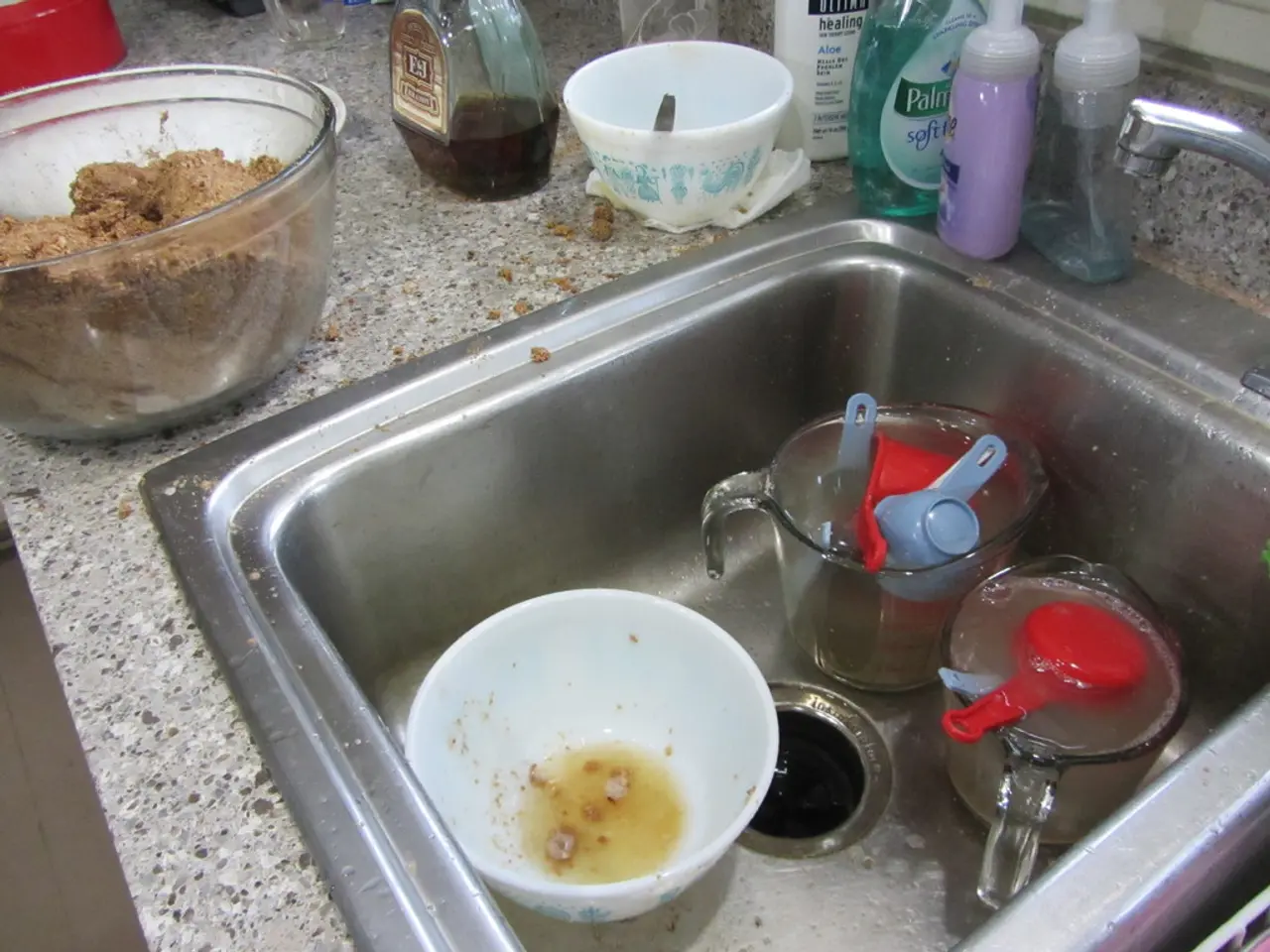Length of Diarrhea Durations, Triggers, Solutions, and Home Remedies
Chronic diarrhea, defined as diarrhea lasting for at least four weeks, can be a distressing and uncomfortable condition. This article aims to provide an overview of the steps involved in identifying the underlying causes, diagnosis, and treatment options for chronic diarrhea.
Identifying the Causes
When diarrhea persists for more than a few days, it's essential to seek a doctor's care, especially in infants, toddlers, and young children. Common causes of chronic diarrhea include food allergies or intolerances, such as lactose, fructose, or sucrose intolerance, and chronic gastrointestinal conditions like irritable bowel syndrome (IBS), celiac disease, Crohn's disease, ulcerative colitis, and small intestinal bacterial overgrowth (SIBO) [1][5]. Other factors may include surgeries on GI organs, medication side effects, diabetes-related neuropathy, and infections.
Diagnostic Steps
A thorough medical history, including a symptom diary noting food triggers and symptom patterns, is crucial in identifying potential causes. Laboratory tests, stool studies, and possibly endoscopy or imaging may be required to rule out infections, inflammation, or structural disorders. Evaluation for food allergies/intolerances and specific tests for celiac disease or SIBO may also be indicated [2][3].
Treatment
Treatment for chronic diarrhea should be tailored to the individual's specific needs. The goal is to target the underlying cause, manage symptoms, and prevent dehydration.
For IBS, dietary changes may help, such as a low-FODMAP diet to minimize fermentable carbohydrates that can trigger diarrhea. A bland diet focusing on low fiber starches, soft fruit, steamed or boiled vegetables, and unseasoned, skinless proteins may also provide relief [3].
Medications like anti-diarrheal agents (such as loperamide) can help slow bowel movements, while antibiotics may be prescribed if a bacterial infection is identified. Probiotics may also be beneficial in some cases, as they can help restore a healthy balance of gut bacteria [3].
Hydration and Hygiene
Replacing fluids and electrolytes lost due to diarrhea is essential to prevent dehydration. Oral rehydration solutions or electrolyte drinks can be effective. Good handwashing practices can also help prevent infections that might cause or worsen diarrhea [2].
Seek Professional Advice
It's crucial to consult a healthcare provider for a proper diagnosis and personalized treatment, especially if symptoms persist, worsen, or include fever. Keeping a food and symptom diary can assist in identifying triggers and guiding management [2].
In summary, chronic diarrhea requires a comprehensive evaluation to identify underlying causes, such as food intolerances, chronic GI diseases, or infections, and treatment should be tailored accordingly with dietary changes, medications, hydration, and addressing the root cause to effectively manage symptoms and improve quality of life [1][2][3][4][5].
Read also:
- Experiencing Life's Variety Firsthand: Gaining Insights from Life's Broad Spectrum of Experiences
- Impact of Complex Post-Traumatic Stress Disorder on Romantic Relationships: Symptoms, Causes, and Precautions
- Strategies for Keeping Work Reasonable and Rewarding for those with Autism and ADHD
- Impaired Driving Awareness Campaign Announced by MADD Under the Name "End Herre"







